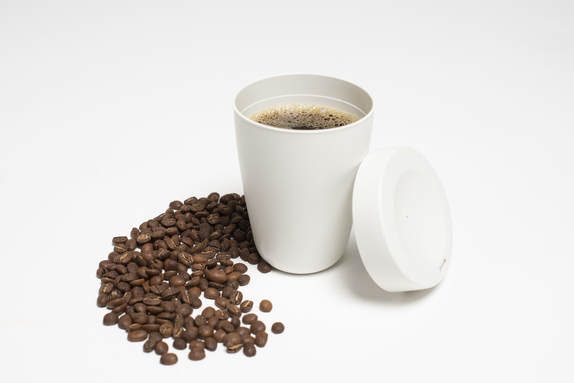|
Rubbish is one topic that keeps me up at night. Everything we throw away has energy locked up in it. That could be anything from the energy used to extract and manufacture the materials, to the energy used to transport the products. Throwing stuff away creates another energy intensive exercise; transporting the rubbish for disposal and the need to manufacture replacements to meet our single use culture.
People seem to be more aware of this, with many campaigns highlighting the huge amounts of plastic waste that end up in our oceans. Zooming in on one specific issue: coffee cups. In the UK, we throw away 2.5 billion a year. These are usually paper on the outside, plastic on the inside, making them extremely difficult to recycle. Growing up in the Middle East, I remember getting coca cola in glass bottles, and returning those bottles to the shop. One company is trying to solve the coffee cup issue in a similar way; CupClub want to stop manufacturing for single use. Rather than focusing on recycling, their focus is on reusing. CupClub offer businesses and retailers a returnable cup and lid service to eliminate waste from their supply chain. This model was adopted after carrying out full life cycle analysis with Giraffe Innovation. Safia Qureshi, Founder and CEO of CupClub, told me that their system uses half the amount of carbon dioxide when compared with disposable cups. To achieve similar results, we would have to increase recycling rates to 84% in the UK. At the moment we're at 1%. Consumers sign up for free to use the cups, giving them access to a map of the drop off points for the cups, similar to borrowing a Santander bike in London. The cups are collected from the drop off points to be washed and redistributed to retailers. CupClub maintain responsibility for their products by tagging each cup. Using technology similar to the Oyster card, they can track where the products are at any time and make sure they are properly managed from start to finish. Also, the data collected will show patterns of use and demand across different areas. This ties in with the company's bigger aim of understanding and improving how we feed a population. Patterns of use can feed back data about how much needs to be manufactured, and how much needs to be grown, to meet demand. Coffee cups are just the start. Returnable food packaging, like the plastic boxes seen at Pret A Manger, Itsu and Marks & Spencer could be next on the hit list. CupClub will be looking to provide frequently used packaging products to make an impact.
1 Comment
If you had to get a human to Mars, where would you start? What sort of things would you consider? You obviously need a rocket and enough fuel, but what will our space traveller eat? How will you keep them alive and healthy? To celebrate the Royal Air Force's 100th birthday, they have teamed up with Rolls-Royce and the Royal Air Force Association to launch STARRSHIP; a social media campaign looking to answer these questions. As you can imagine, the topic is huge and has opened up the opportunity for some creative and fun content. The campaign is aiming to show STEM careers in a new light, and inspire a generation of innovators. To draw in a wide audience, STARRSHIP has drafted in some YouTube influencers. Tom Scott, whose YouTube channel has over a million subscribers, flew with the Red Arrows to explain how Formation Flying works. He also flew with the Blades, a full time civilian aerobatic display team, to explain G-Force. On the nutrition topic, 13 year old Junior Bake Off Winner 2016 and YouTuber Nikki Lilly and Great British Bake Off finalist and Rolls Royce engineer Andrew Smyth baked a no-fat chocolate cake and dehydrated it so it can be eaten in Space. They skilfully navigate through the issues of baking in space in their video. There is lots more content to come, which will hopefully inspire some budding engineers and scientists of the future.
For more information, visit the STARRSHIP website. |
Yasmin AliEngineer, writer, presenter Archives
March 2023
Categories |

 RSS Feed
RSS Feed